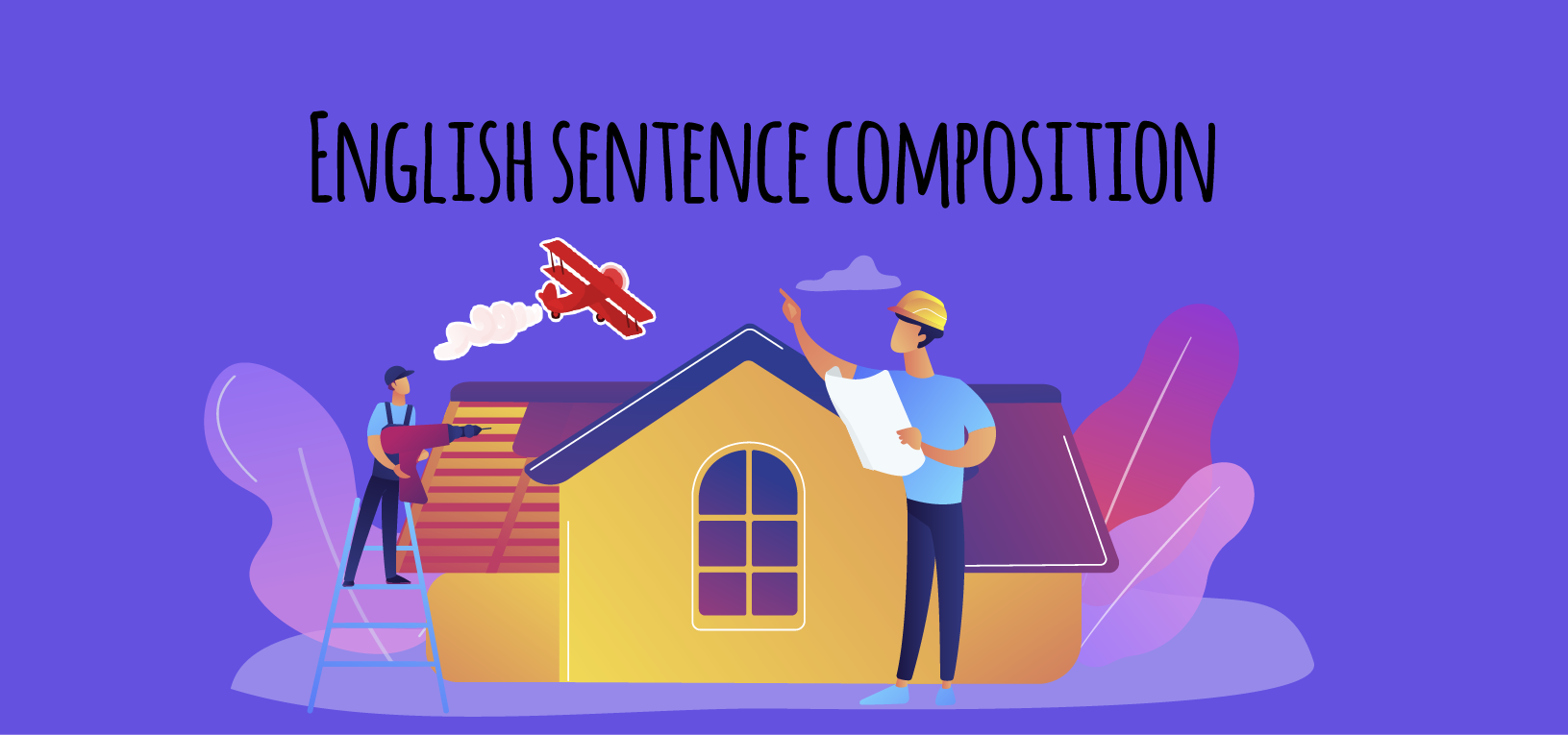English sentence composition

English sentence composition
ÍNDICE DE CONTENIDOS
In this article we will provide you with the information you need about the basic elements of sentences in English. In this sense, we will give you a useful explanation about sentence patterns and the rules for the construction of varied sentences in writing in English. We hope you enjoy your reading and start writing good effective sentences.
What is a sentence?
In English a sentence is defined as a group of related and linked words that communicate an idea, event or description . Keep in mind that the words in a sentence in English have a certain order and rules regarding the ways to expand or shorten them.
The boundaries of a sentence in English are easy to recognize, because it begins with a capital letter and ends with a terminal punctuation mark (period, question mark, or exclamation point). Therefore, it is necessary for the English student to know the language with the grammatical terms of the sentences, in order to be able to analyze and develop their writing.
The main sections related to the structure of sentences in English are:
- Basic structure of the clause
- Phrases
- Types of clauses
Sentence structure in English writing
The four types of sentences in writing in English
Clauses of different types can be combined to form the four types of sentences in English writing . The most recognized writers usually use a great variety of types of sentences to achieve a much more interesting and dynamic writing. In this regard, don’t forget to use appropriate punctuation and the variety of connectors that make logical connections, both within and between sentences:
A simple sentence
It consists of a single independent clause and not dependent clauses.
- We had a great visit to Paris and Berlin last September / Tuvimos una gran visita a París y Berlín en septiembre pasado.
A compound sentence
Is made up of two or more independent clauses that can be connected by a coordinating conjunction (and, but, for, nor, or, so, still), a semicolon alone, or a semicolon and a conjunctive adverb (also called transition).
- We visited Paris last September, but my sister visited Berlin last summer. / Visitamos París en septiembre pasado, pero mi hermana visitó Berlín el verano pasado.
- Most people enjoy visiting European cities; few do not. / La mayoría de la gente disfruta visitando ciudades europeas; pocos no lo hacen.
- Most people enjoy visiting European cities; however, few do not. / La mayoría de la gente disfruta visitando ciudades europeas; sin embargo, pocos no lo hacen.
A complex sentence
it is made up of an independent clause (the main clause) and one or more dependent clauses. In the following examples, the independent clause is in bold.
- While we were walking through the Louvre, we suddenly met our neighbor John and his family. / Mientras caminábamos por el Louvre, de repente nos encontramos con nuestro vecino John y su familia.
[ Dependent adverb clause starting with while ; separate clause starting with us]
- While we were walking through the Louvre, which is one of the most famous museums in the world, we suddenly met our neighbor John and his family, who were also on vacation in Paris. / Mientras caminábamos por el Louvre, que es uno de los museos más famosos del mundo, de repente nos encontramos con nuestro vecino John y su familia, que también estaban de vacaciones en París.
A compound-complex sentence combines a compound sentence with a complex sentence. It contains two or more independent clauses and one or more dependent clauses.
- While we were walking through the Louvre, which is one of the most famous museums in the world, we suddenly met our neighbor John with his family, and all of us went out for lunch at a splendid bistro. / While we were walking through the Louvre, which is one of the most famous museums in the world, we suddenly met our neighbor John with his family, and we all went out for lunch in a splendid bistro.
[Dependent adverb clause starting with while; separate clause starting with us ; separate clause starting with all of us]
- While we were walking through the Louvre, we suddenly met our neighbor John with his family, and all of us went out for lunch at a splendid bistro, located in a narrow street on the smaller island in the river Seine. / Mientras caminábamos por el Louvre, de repente nos encontramos con nuestro vecino John con su familia, y todos salimos a almorzar a un espléndido bistró, ubicado en una calle estrecha de la isla más pequeña en el río Sena.
[Dependent adverb clause starting with while; separate clause starting with us; separate clause starting with all of us; dependent elliptic adjective clause beginning with localized ]
Some observations
Don’t forget to put a comma before a coordinating conjunction that connects two independent clauses. Use semicolons between independent clauses that contain commas or are very long.
Sentence structure: summary
As our short article shows, sentence structure rules are the building blocks of writing in English. Knowing the basics will help you make your writing more complex as you advance your writing skills.
Remember! You are still in time to pass your official exam before the end of the year. Here are the closest calls.


